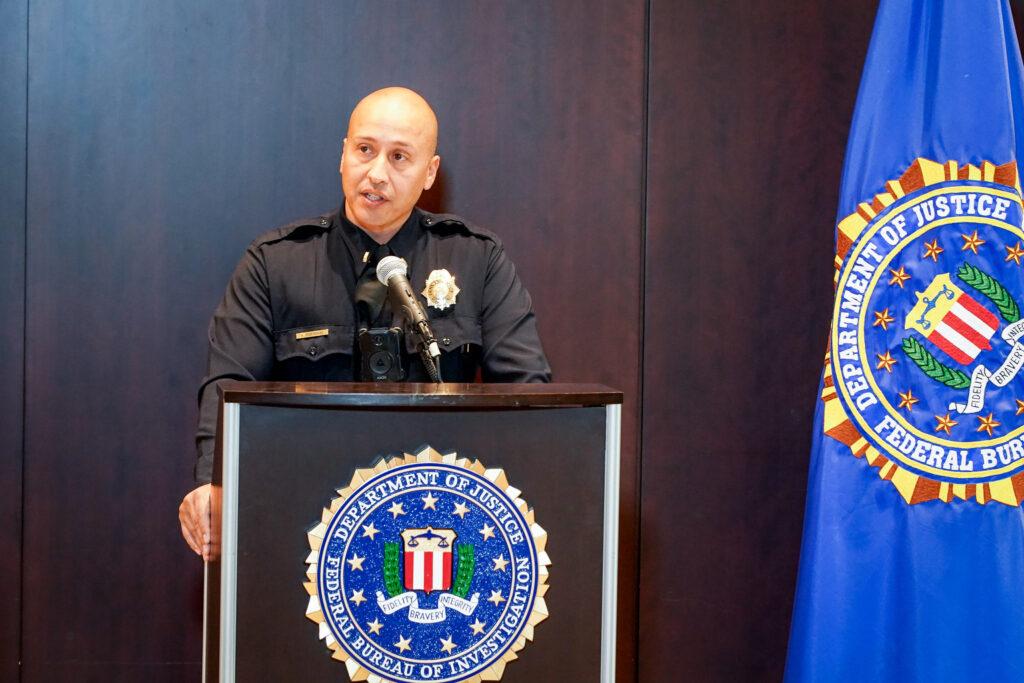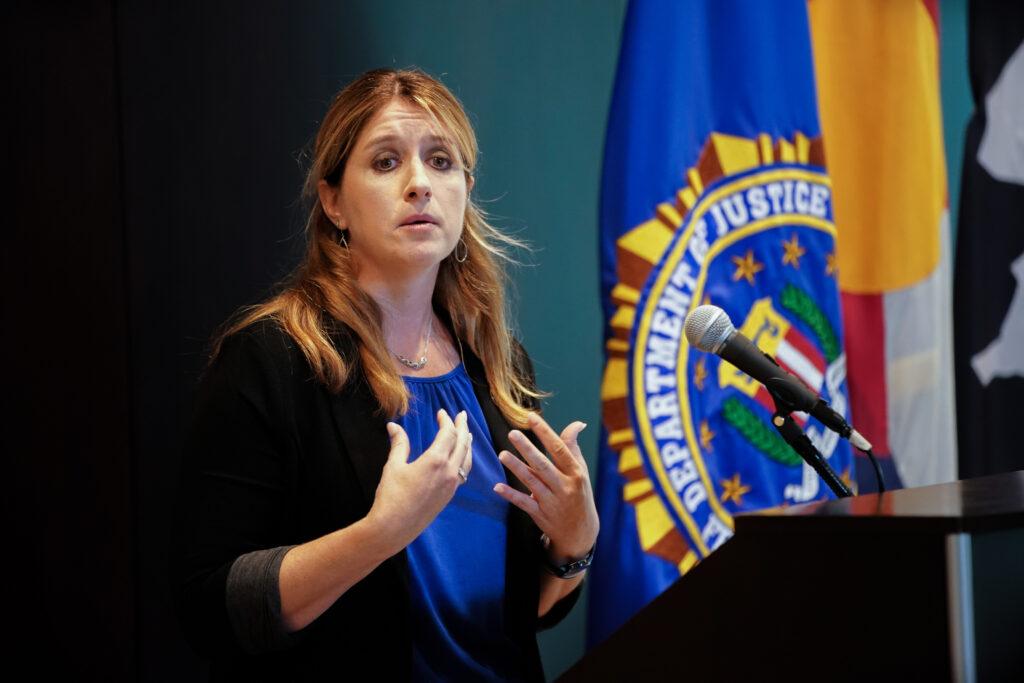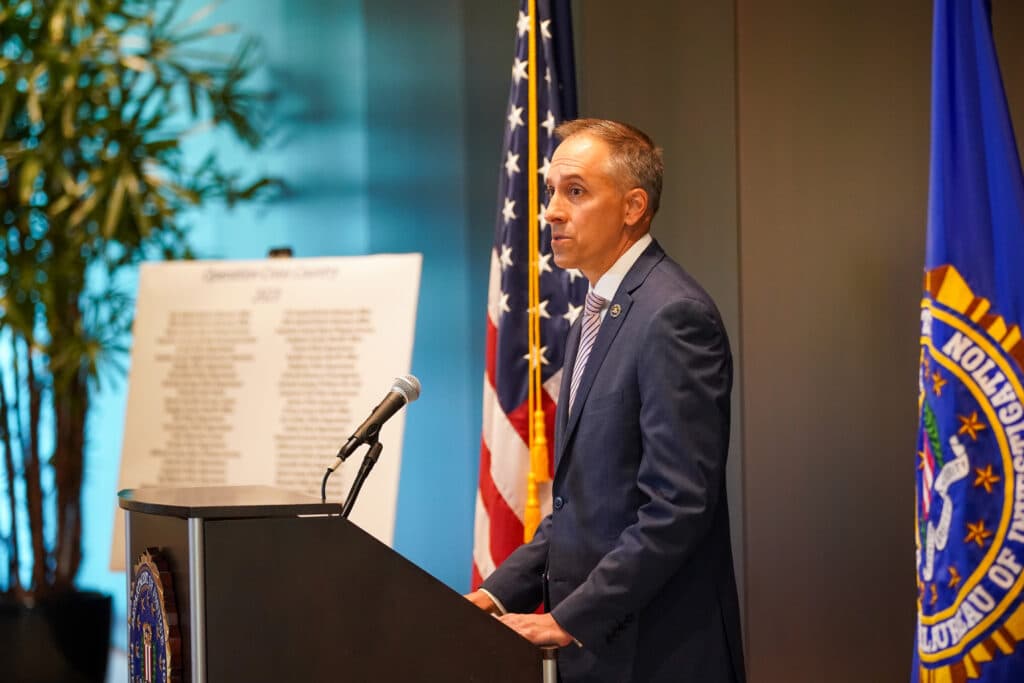
The FBI released the Colorado results of a nationwide sex trafficking enforcement campaign called Operation Cross Country. The campaign recovered 27 sex trafficking victims in the state – eight juveniles and 19 adult victims – during the two-day operation in July.
FBI Denver Special Agent in Charge Mark Michalek stressed the cases weren’t just abductions on the street.
“This isn't a kidnap off the streets scenario that you might see in a movie,” Michalek said. “We see sex traffickers identifying vulnerable minors and exploiting them through different methods of psychological or physical control.”
Fourteen more children were located during the campaign, but not yet recovered. Five traffickers were arrested and eight others were identified for further investigation. The names of the victims and suspects from Operation Cross Country were not released.
FBI Denver partnered with more than 40 state and local agencies in locating victims of sex trafficking as well as investigating and arresting individuals related to those crimes.

The campaign discovered a disturbing trend among sex traffickers. Many of them use addiction, substance abuse and mental health to lure juvenile victims. Lieutenant Aaron Rebeterano of the Denver Police Department’s Strategic Investigations Bureau says many of the victims are from dysfunctional homes.
“Many of them are addicted to illicit narcotics, and this is an angle that the traffickers can use to subject them to exploitation,” Reberterano said. “This begins the grooming process for the traffickers. Traffickers often offer these juveniles and these teens drugs in lieu of sex. The traffickers will then try to hold onto the victims and then offer them to other individuals associates for sexual acts.”
Reberterano says most traffickers are low to mid-level dealers and gang members that see selling human beings for sex acts as more lucrative than selling narcotics.
“Although we have observed this current trend, we have also investigated residential brothels, illicit massage parlors and street level trafficking, all with the same outcome,” Rebeterano said.

FBI Denver says the recovery efforts and arrests are the beginning of helping victims. Ann Darr, a victim specialist for FBI Denver’s Child Exploitation and Human Trafficking Task Force, says the agency will continue to provide resources to victims.
”The initial response may be that the trauma bond, meaning that they have this immense connection with their trafficker, where they want to be protective of them,” Darr said. “And so asking some of those questions really tries to break down those trauma bonds to really open them up to be able to talk to us and really seek out either medical attention and those basic needs.”
“Then, we're able to open the door to be able to talk about their experience, their story, what may have happened to them,” Darr said.
The Juvenile Assessment Center and the Arapahoe Child & Adult Protective Services Division were among the agencies that assisted victims.
Nationally, this year’s Operation Cross Country identified and located 200 victims
The campaign led to the identification or arrest of 126 suspects of child sexual exploitation and human trafficking offenses across the country. Another 68 trafficking suspects were arrested.
During last year’s campaign, FBI Denver recovered 11 child victims of sexual exploitation, Located 27 missing or endangered children and recovered 11 adult victims. That campaign also identified six traffickers and arrested two on unrelated felony warrants.

Michalek says the campaign is just a snapshot of sex trafficking in Colorado. FBI Denver says efforts are ongoing and warned it could happen to anyone and anywhere.
“As a leader and as a parent myself, the stories that I hear are absolutely heartbreaking,” Michalek said. “Again, I think there's a misperception that it won't happen to my kid.
Michalek referenced the rapid pace of technology as part of the problem and said online safety is important.
“The internet now exposes kids to people that they usually wouldn't interact with,” Michalek said. “When we were growing up, it was more kind of location based. But now folks from all over the world, all over the nation, can interact with your kids. I think that folks need to communicate to their kids again. This problem is here. It surpasses all demographics. It is across the board, and it is something that parents should have on their radar.”









